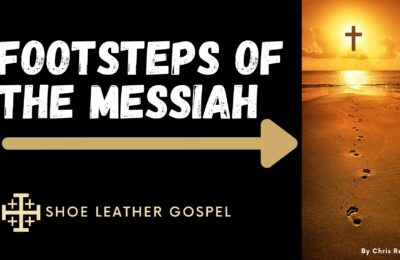Home | Bible Resources | Historical Books
1 Kings: Walking with Wisdom in Divided Times
Introduction
The Book of 1 Kings opens with the aged King David passing the torch to his son Solomon — a moment of promise and potential. Yet even at the height of Israel’s power, fault lines begin to show. Solomon’s reign builds the majestic temple, but also sows seeds of syncretism. After his death, the kingdom fractures, and 1 Kings becomes a tragic ledger of decline — from unity to division, glory to idolatry, covenant to crisis. This book is not just history; it’s a theological postmortem on spiritual compromise. And in the midst of political turmoil and prophetic confrontation, it reveals that no earthly king — no matter how wise or powerful — can secure God’s promises. Only the future Son of David can rule with perfect justice, faithfulness, and peace.
1. Title, Author, and Date
Title: The book is titled 1 Kings (Hebrew: מְלָכִים א, Melakhim Aleph), meaning “Kings.” In the Hebrew Bible, 1 and 2 Kings were one unified scroll, known simply as Melakhim — “Kings.”
Author and Date: Jewish tradition ascribes authorship to the prophet Jeremiah, though the book is technically anonymous. Internal evidence suggests it was compiled by a prophetic historian drawing from royal annals and prophetic records (e.g., “Book of the Acts of Solomon”). Final composition likely occurred during the Babylonian exile (c. 560–540 BC), explaining the retrospective theological tone.
Historical Setting: 1 Kings covers roughly 120 years — from the final days of David’s reign (c. 971 BC) through the division of the united kingdom, and the reigns of kings in both Israel (the Northern Kingdom) and Judah (the Southern Kingdom), ending with Ahaziah’s brief reign (c. 853 BC).
Covenant & Redemptive Role: This book explores the outworking of the Davidic Covenant (2 Samuel 7) in light of Israel’s failure to keep the Mosaic Covenant. It highlights the tension between God’s promise to preserve David’s line and Israel’s downward spiral into apostasy — a pattern that anticipates the coming need for a righteous and eternal King.
Book Stats Sidebar
Chapters: 22
Verses: 816
Approximate Word Count: 24,500 (LSB)
Timeline: c. 971–853 BC
2. Purpose and Themes
Central Theological Purpose
To demonstrate the theological consequences of covenant obedience and disobedience, particularly in leadership — and to highlight the insufficiency of human kingship apart from wholehearted devotion to Yahweh.
Major Doctrines
- The Davidic Covenant and Messianic hope
- The sin of idolatry and syncretism
- The role of the prophetic office in holding kings accountable
- Divine sovereignty in the rise and fall of kings
- God’s long-suffering patience amid rebellion
Literary Features
- Alternating structure between Northern and Southern kingdoms
- Prophetic interludes (Elijah narratives) as theological commentary
- Regnal formulas (“He did evil/good in the sight of the Lord…”)
- Covenant evaluation lens over royal performance
- Irony and reversal — the wise king (Solomon) becomes foolish
3. Outline of 1 Kings
1 Kings traces the spiritual trajectory of Israel from its golden age under Solomon to its moral decline under divided rule. The book critiques political power divorced from covenant faithfulness and elevates the prophetic voice as the true guardian of Israel’s destiny.
I. Solomon’s Rise and Reign (Chs. 1–11)
A. Succession of Solomon (1:1–2:46)
- Adonijah’s attempted coup
- Solomon anointed king
- David’s final charge
- Consolidation of power
B. Establishing the Kingdom (3:1–4:34)
1. Solomon’s request for wisdom
2. Display of judicial discernment
3. Administration and prosperity
C. Construction of the Temple (5:1–8:66)
1. Preparations and materials
2. Temple built and furnished
3. Dedication and glory of the Lord
D. Covenant and Compromise (9:1–11:43)
1. God’s second appearance
2. Solomon’s fame and foreign alliances
3. Spiritual decline through foreign wives
4. Prophecy of judgment and adversaries raised
II. Kingdom Divided: Rehoboam and Jeroboam (Chs. 12–14)
A. Rehoboam’s folly and civil war
B. Jeroboam’s counterfeit religion
C. Prophetic rebuke and judgment
D. Death of Jeroboam’s son
III. Early Kings of Judah and Israel (Chs. 15–16)
A. Abijam and Asa in Judah
B. Nadab, Baasha, Elah, Zimri, Omri in Israel
C. Pattern of evil intensifies
IV. Elijah the Prophet vs. Ahab (Chs. 17–22)
A. Elijah’s drought decree (17)
B. Mount Carmel confrontation (18)
C. Elijah’s despair and divine encounter (19)
D. Naboth’s vineyard and judgment (21)
E. Prophecy of Ahab’s death and fulfillment (22)
Canonical Flow: 1 Kings transitions us from the united monarchy to the divided kingdom, illustrating the high point of temple theology and the tragic decline into covenant betrayal. It bridges the glory of Solomon with the prophetic confrontation to come in 2 Kings.
4. Key Themes and Theological Contributions
Theological Motifs
- Creation → Order → Corruption: The temple dedication mirrors Edenic peace and divine presence, but disobedience corrupts it.
- Covenant Fidelity: God’s covenant with David (2 Sam 7) is upheld in promise, though its fulfillment is deferred.
- Prophetic Authority: Elijah models the prophetic office as the true spiritual leadership in contrast to corrupt kings.
- Judgment and Mercy: Despite rebellion, God sends prophets, raises adversaries, and orchestrates events to preserve a remnant.
Typology and Foreshadowing
- Solomon as a type of Christ — a king of wisdom, peace, and temple glory — but also a warning that no earthly king can fulfill God’s covenant apart from perfect obedience.
- Elijah as a type of John the Baptist — calling Israel to repentance and confronting apostasy.
Christological Links
- Jesus refers to Solomon’s wisdom (Matt 12:42)
- Elijah appears at the Transfiguration (Matt 17:3)
- The temple anticipates Christ’s body and presence (John 2:19–21)
⚔️ Major Rebellions/Turning Points
1. Solomon’s Syncretism — The wisest man succumbs to idolatry, marrying foreign wives and building high places (1 Kings 11).
2. Division of the Kingdom — Rehoboam’s arrogance fractures Israel (1 Kings 12), fulfilling divine judgment.
3. Jeroboam’s False Religion — Invents a new priesthood and golden calves, locking the North into idolatry (1 Kings 12:25–33).
📌 Memory Verse: 1 Kings 8:61 (LSB) — “Let your heart be wholly devoted to Yahweh our God, to walk in His statutes and to keep His commandments, as at this day.”
5. Christ in 1 Kings
Christ is anticipated in the wisdom, peace, and temple-building of Solomon — yet also by contrast, as the one greater than Solomon (Matt 12:42). Elijah prefigures John the Baptist, preparing the way for the Lord. The temple itself, filled with God’s glory, points forward to Christ as Immanuel, the true temple (John 1:14; 2:19–21), and the coming kingdom where righteousness dwells.
Typology and Fulfillment Chart
| 1 Kings Theme | Fulfillment in Christ |
|---|---|
| Solomon’s Wisdom | Christ, the wisdom of God (1 Cor 1:24) |
| Temple Dedication | Christ as the true Temple (John 2:19–21) |
| Elijah the Prophet | John the Baptist (Luke 1:17; Matt 17:12) |
| Davidic Covenant | Fulfilled in Jesus, the eternal King (Luke 1:32–33) |
6. Historical and Literary Notes
Genre
Historical narrative with prophetic interjections, royal annals, and theological commentary.
ANE Parallels
- Temple construction motifs mirror other ancient Near Eastern temples but uniquely emphasize covenant, law, and the glory of Yahweh.
- Succession conflicts and court intrigue reflect the broader Ancient Near East, yet the biblical narrative interprets them through covenantal lenses.
👤 Key Characters:
- Solomon – Wise but compromised king; built the temple but fell to idolatry.
- Rehoboam – Son of Solomon; his pride divides the kingdom.
- Jeroboam – First king of the North; institutionalized idolatry.
- Elijah – Bold prophet who confronted Ahab and called Israel to repent.
- Ahab – Wicked king of Israel; married Jezebel and opposed Elijah.
- Jezebel – Pagan queen who corrupted Israel with Baal worship.
7. Applications for Today
Discipleship Formation
1 Kings reminds us that spiritual compromise begins subtly but ends destructively. Faithfulness is measured not by our start but by our finish — by the trajectory of our heart toward God.
Worldview and Ethics
Cultural syncretism and political expedience are not new threats. This book equips believers to discern false worship, resist cultural accommodation, and value prophetic truth over popular approval.
Leadership and Mission
God evaluates leaders by their faithfulness, not their fame. Like Elijah, believers must sometimes stand alone — but never without God.
8. Shoe Leather Discipleship Tie-In
This book shows us that even the best human leadership will ultimately falter without wholehearted devotion to God. 1 Kings calls us to walk wisely, resist compromise, and cling to God’s promises in times of division. In the chaos of crumbling kingdoms, the faithful remnant — led by prophetic voices — shines all the brighter. As we follow Christ, the true and better King, may our lives reflect undivided loyalty in a fragmented world.







